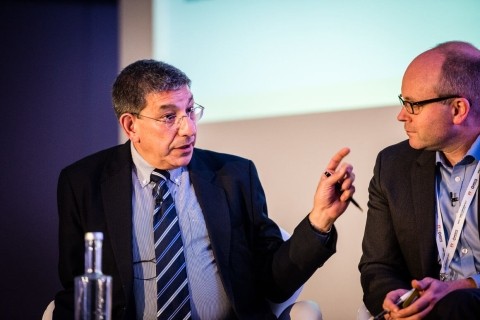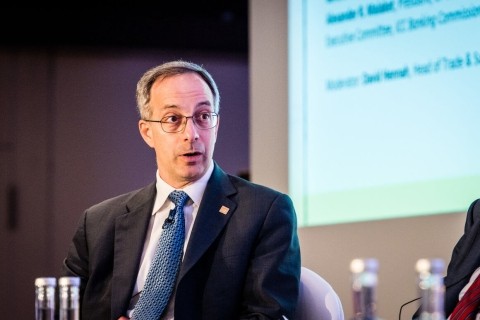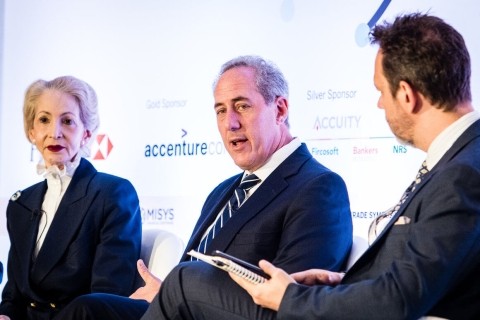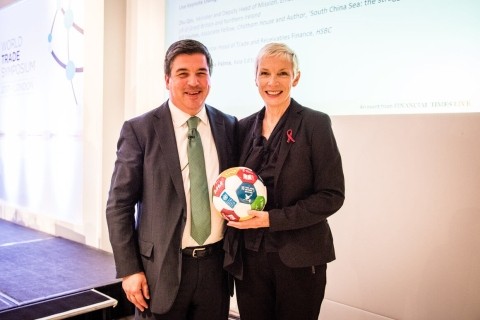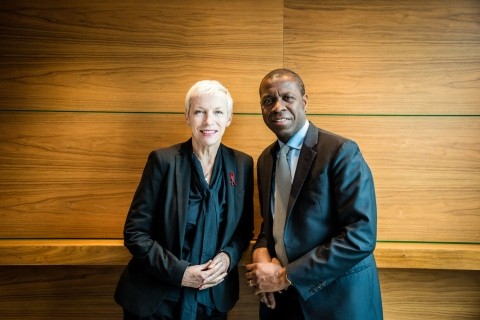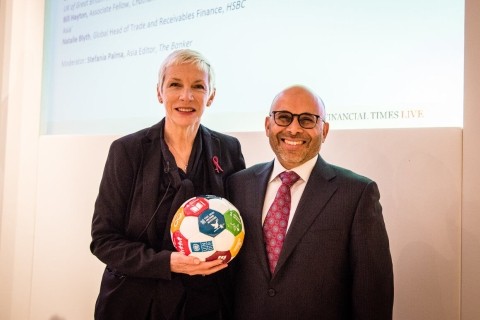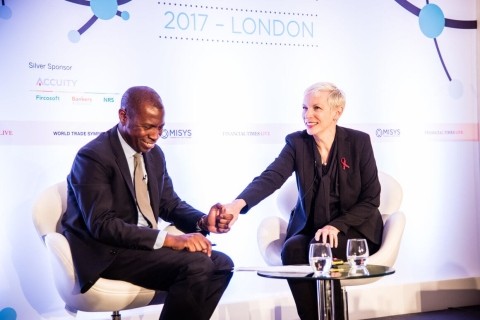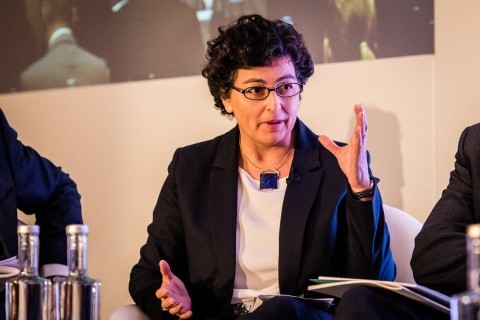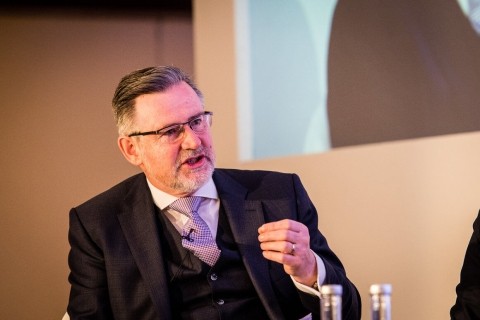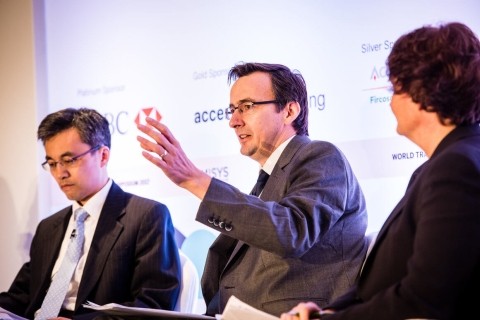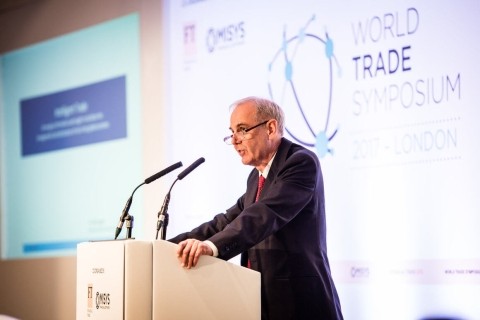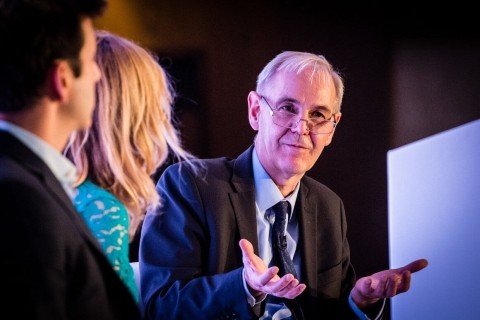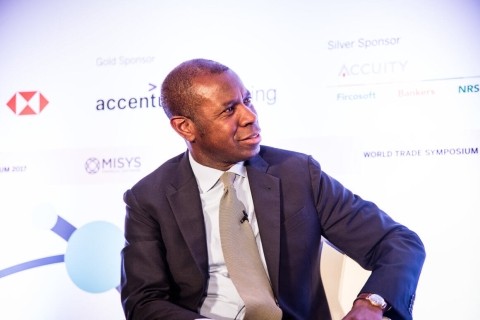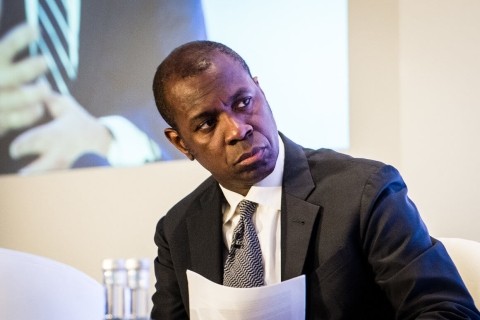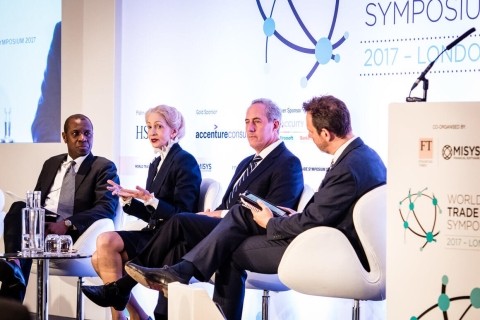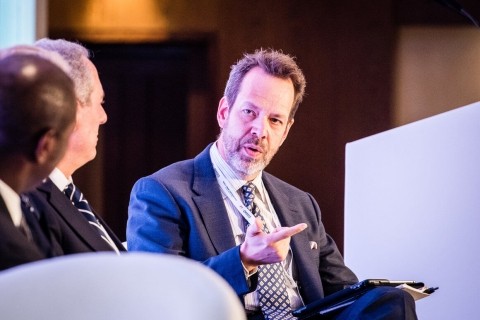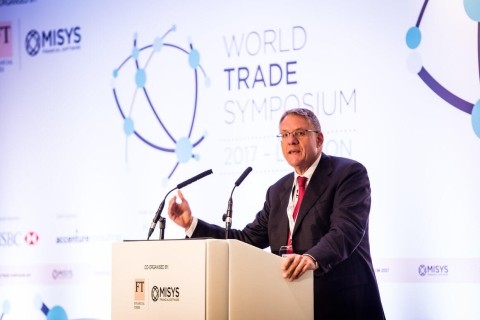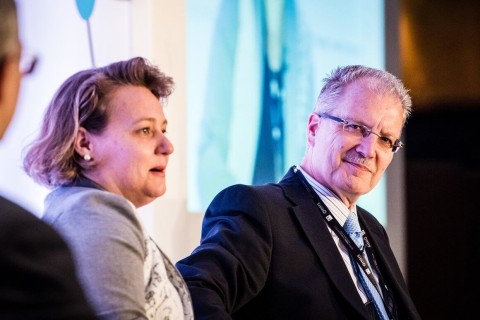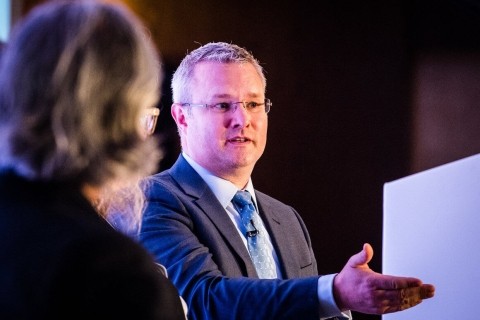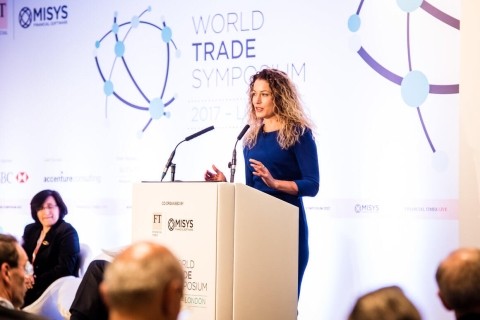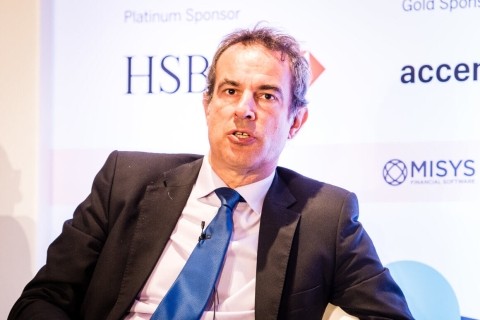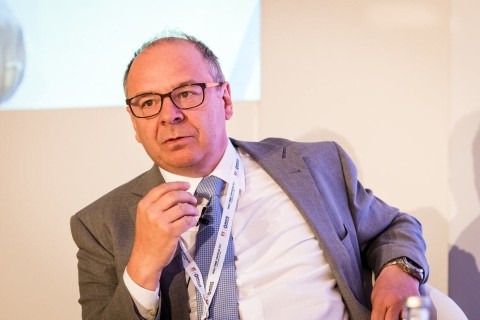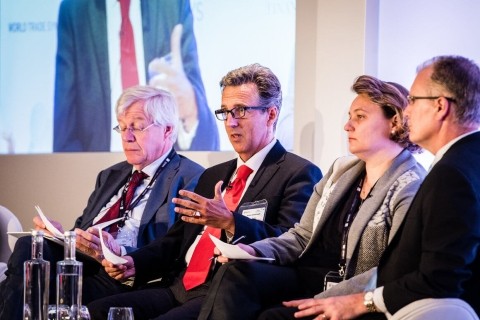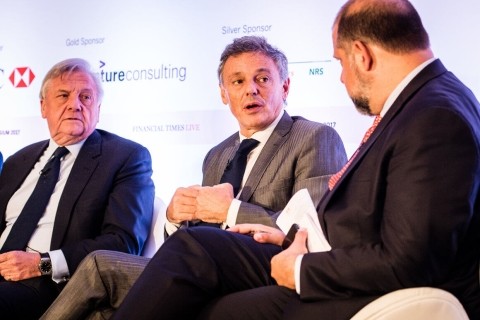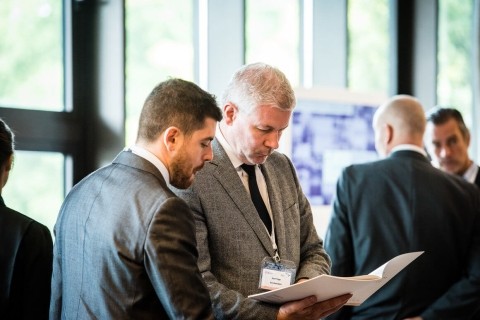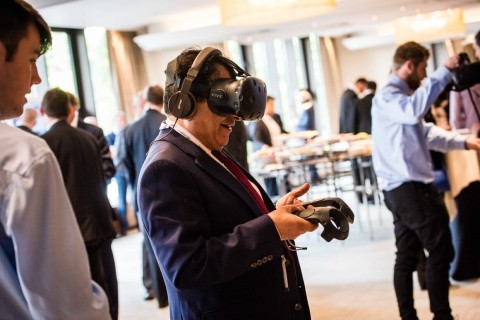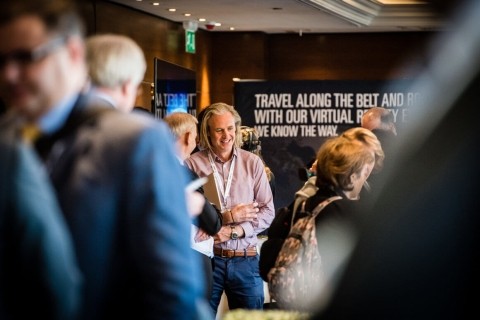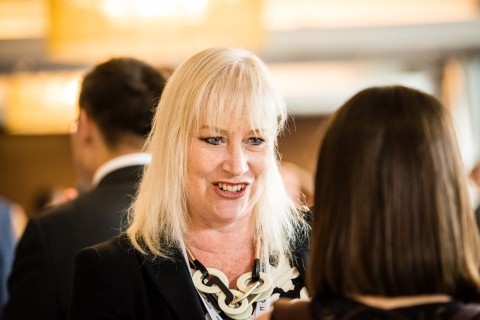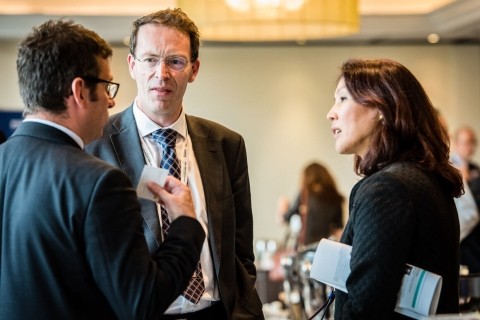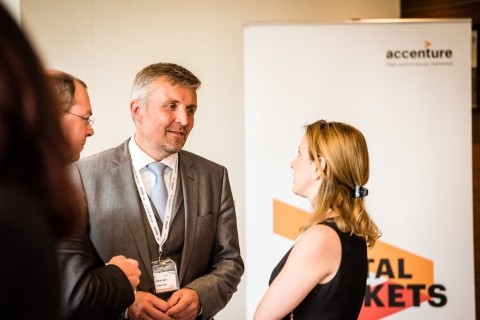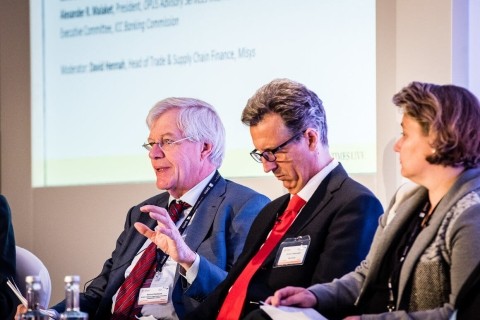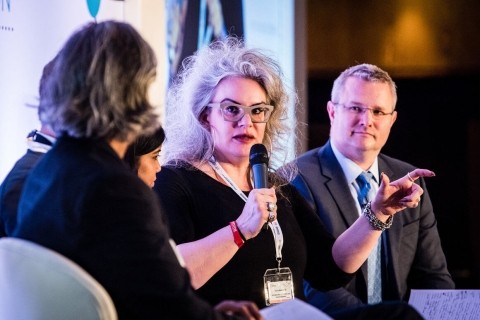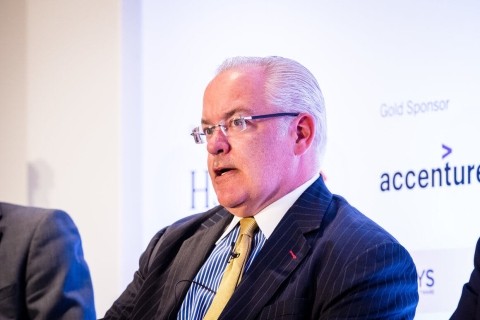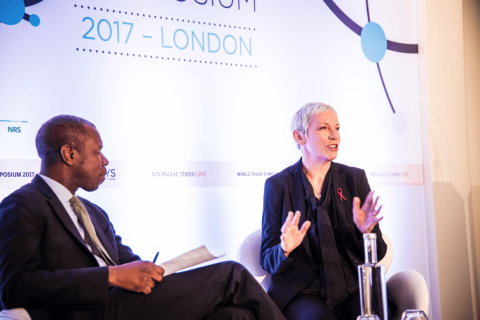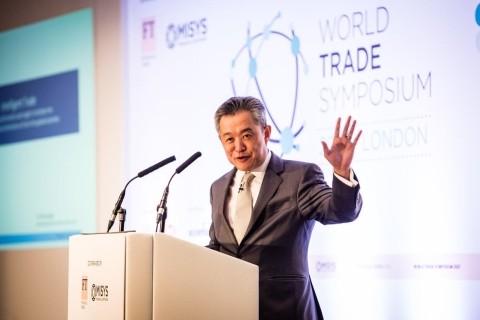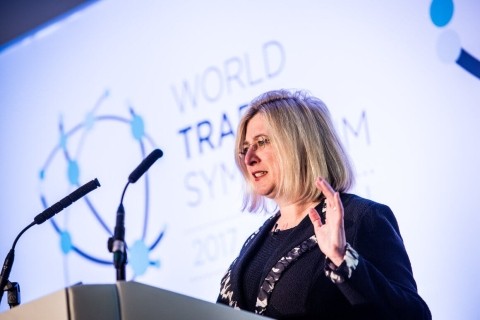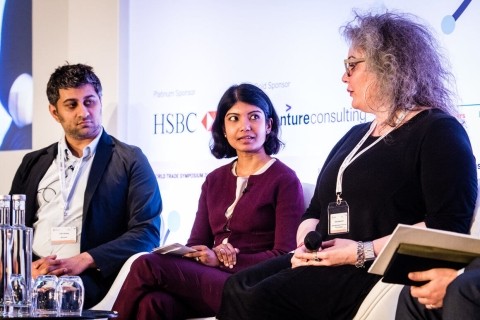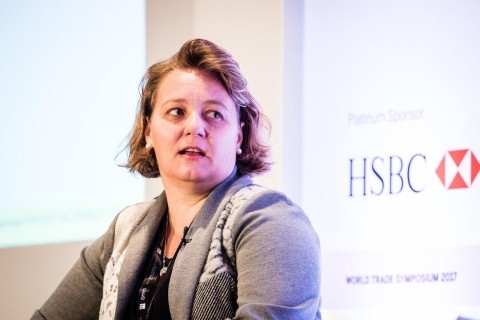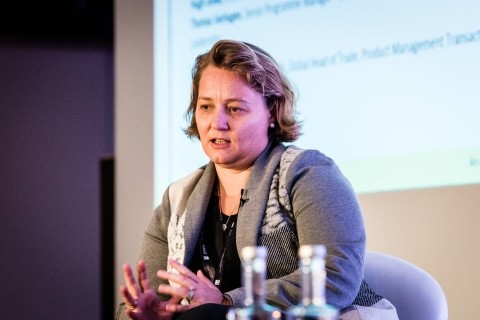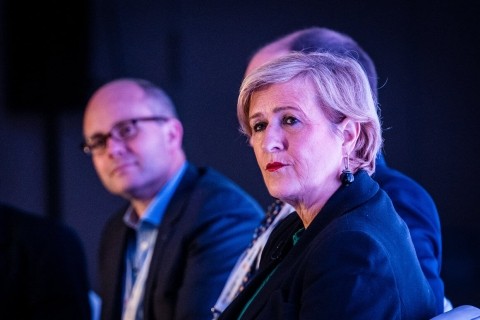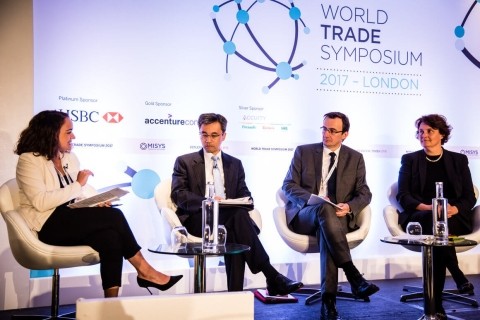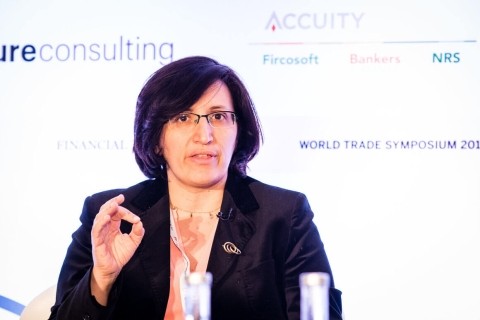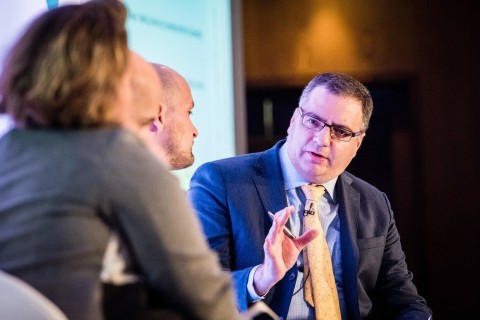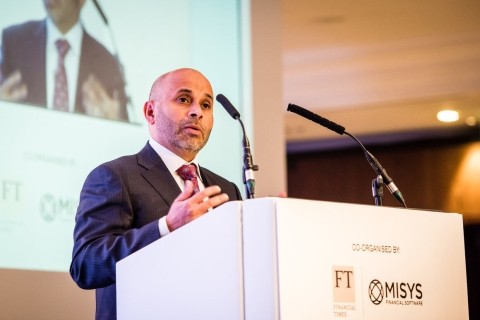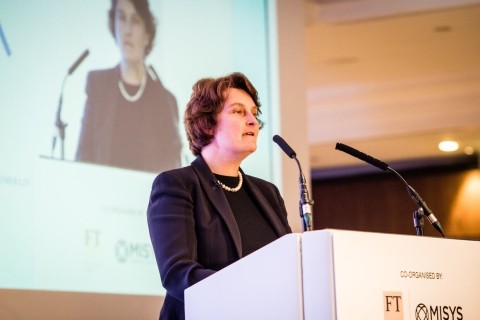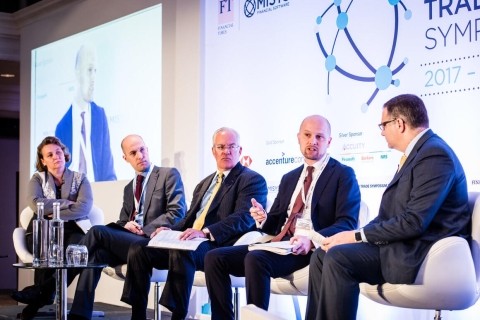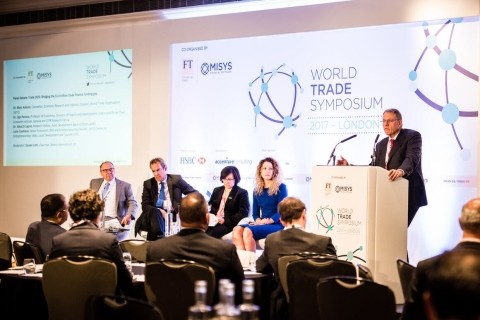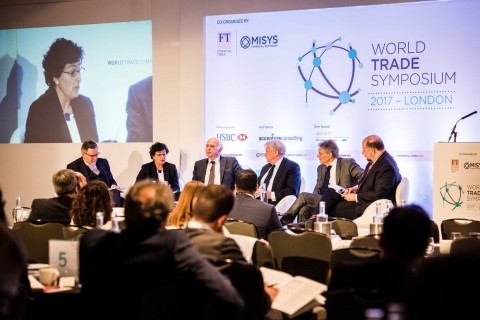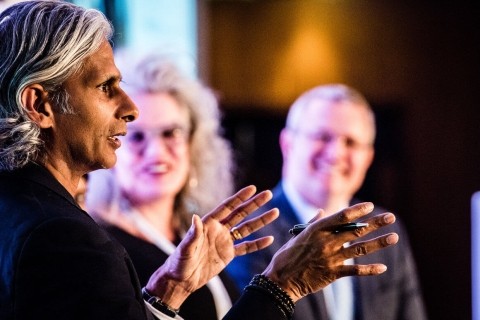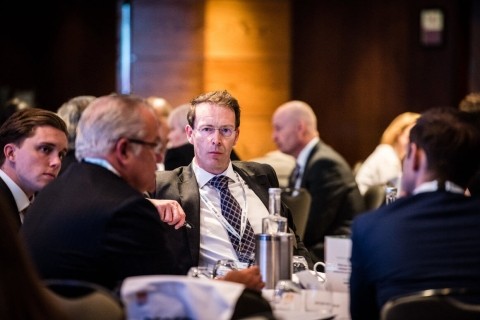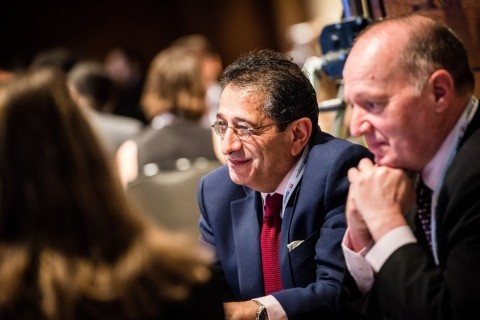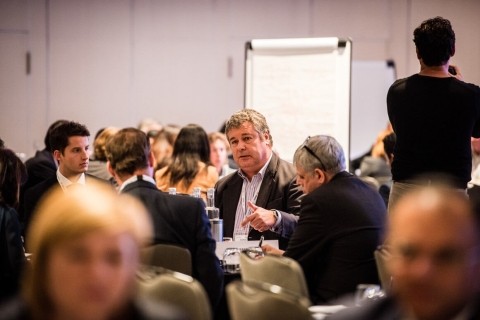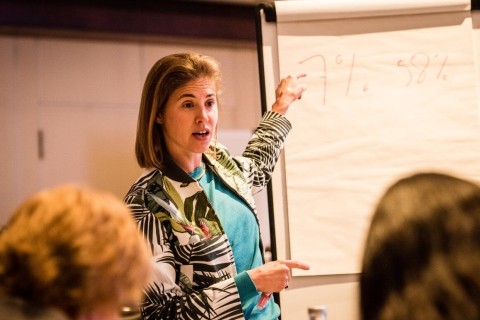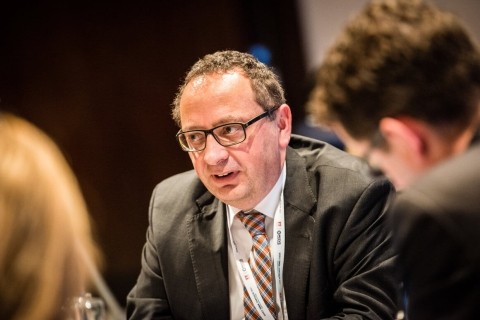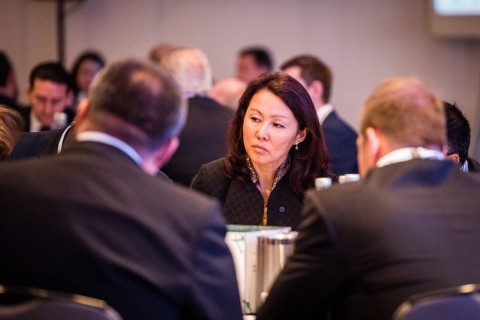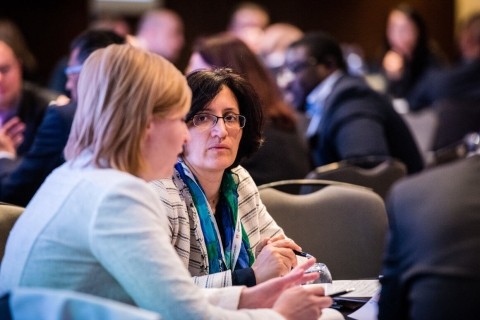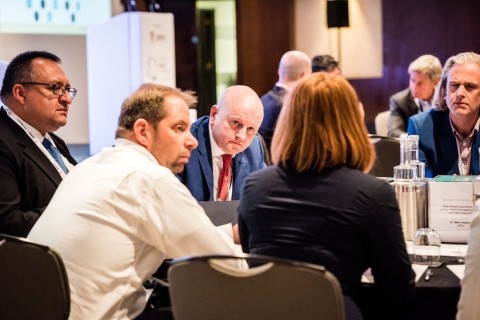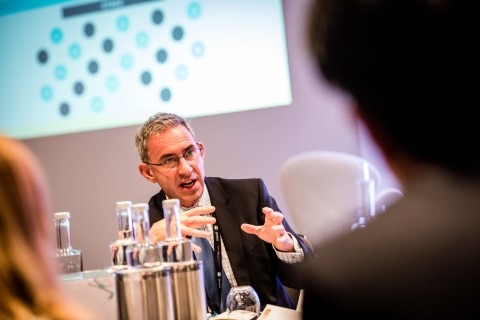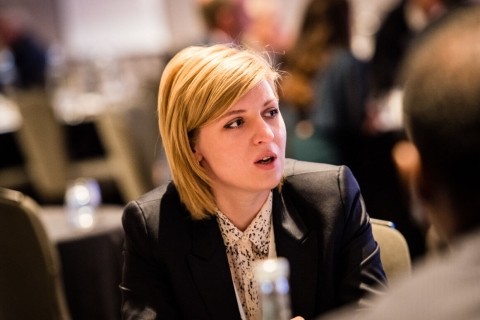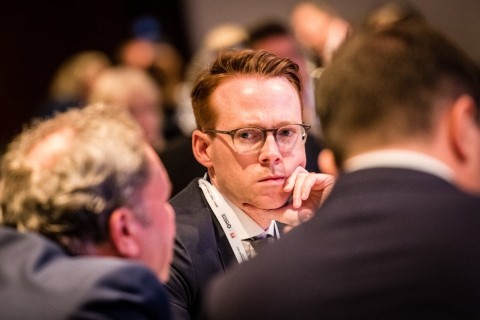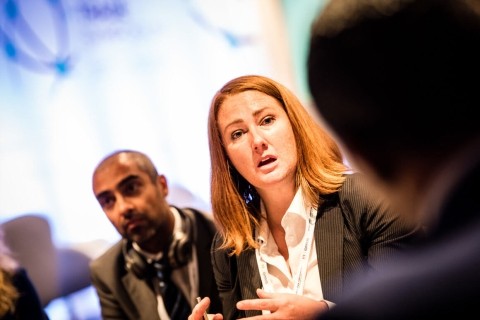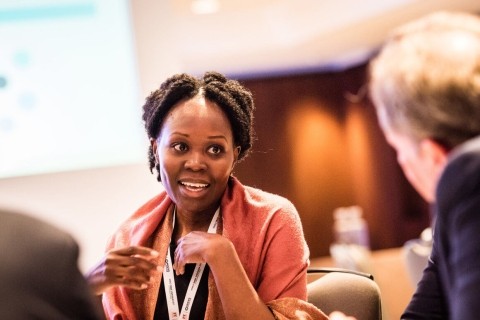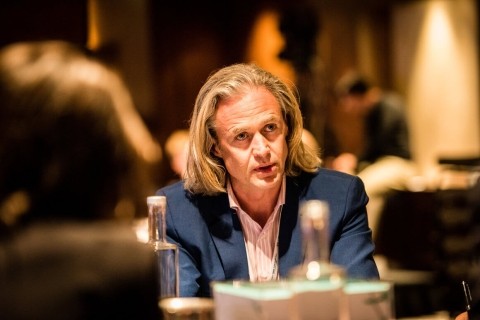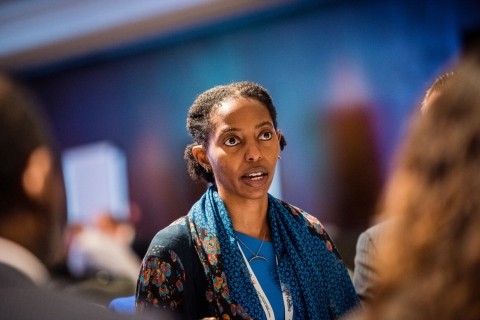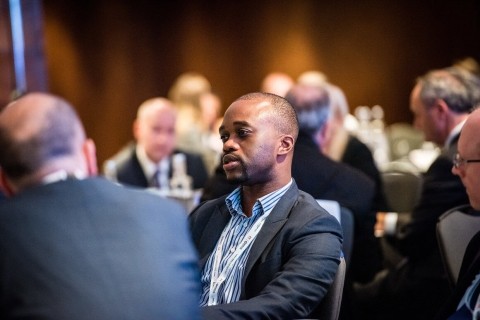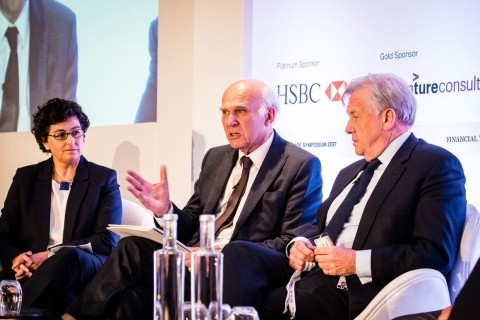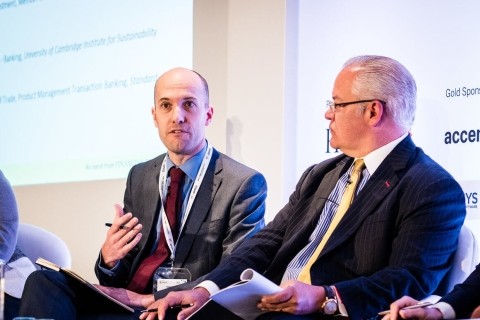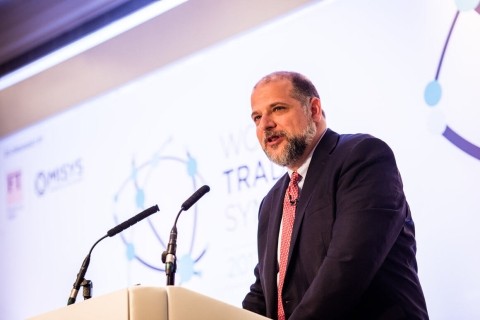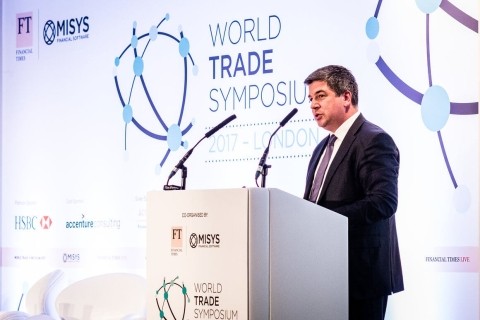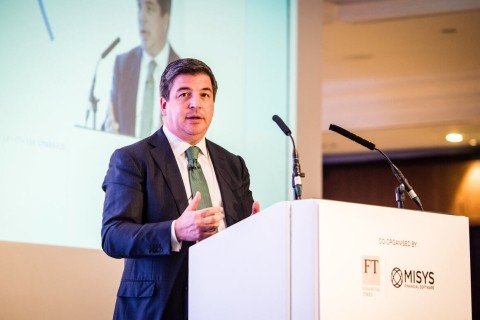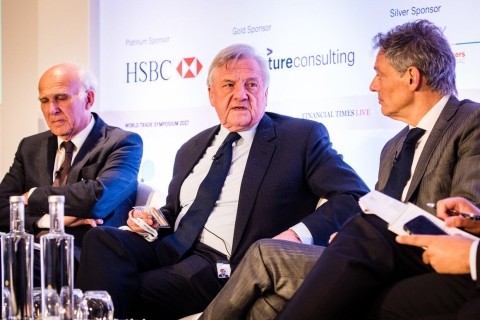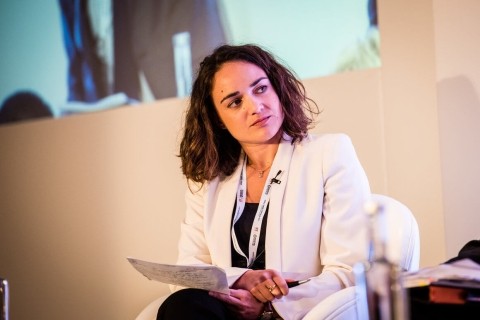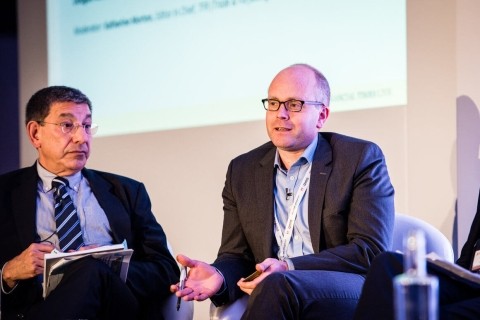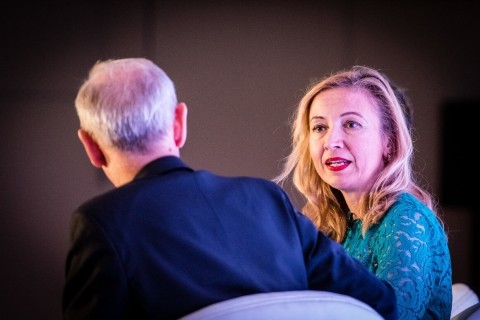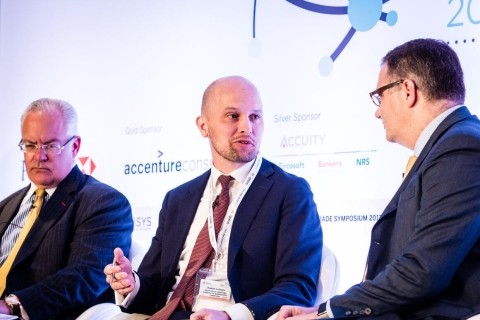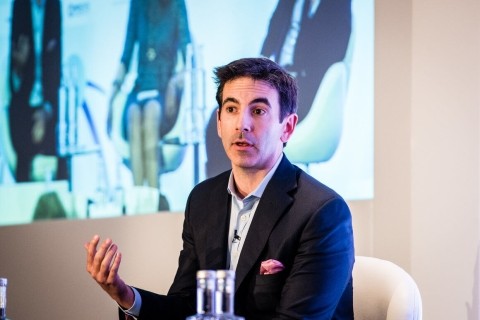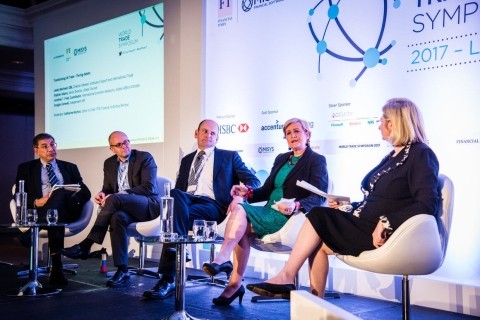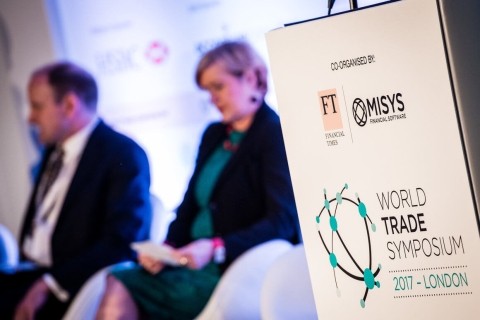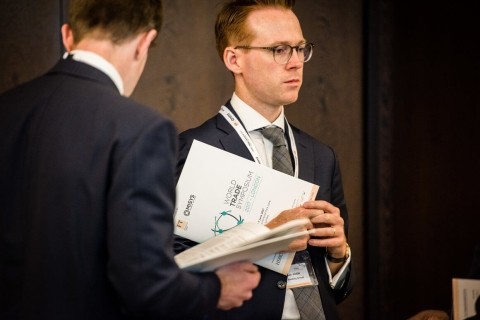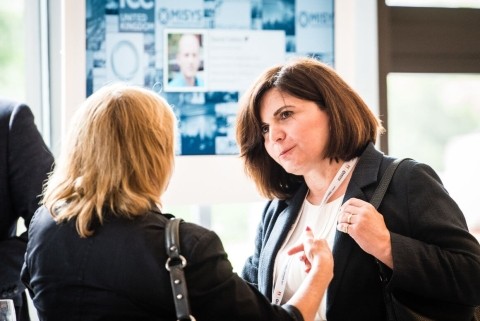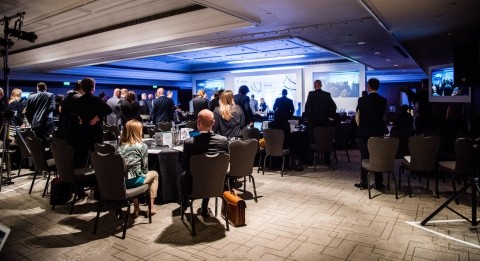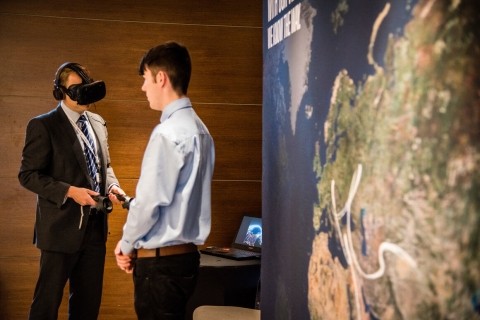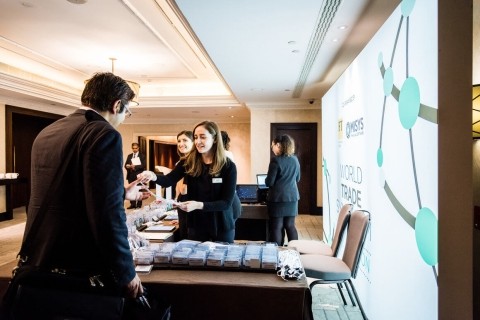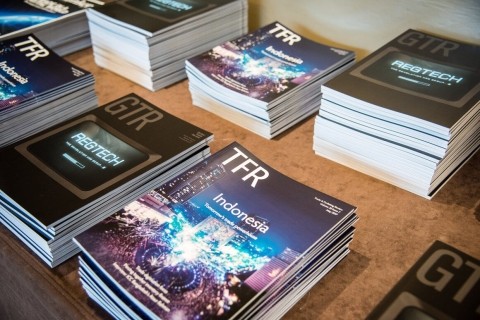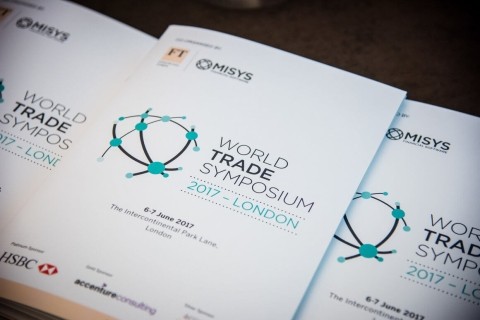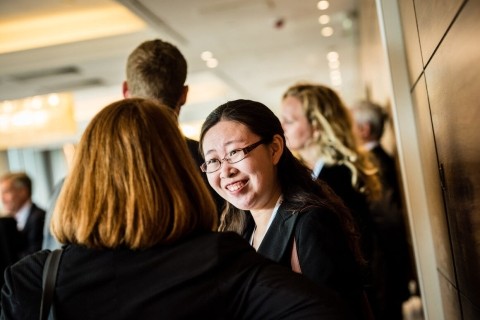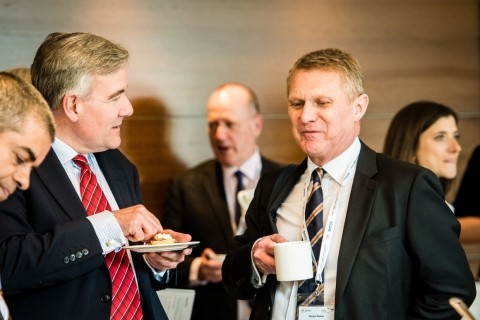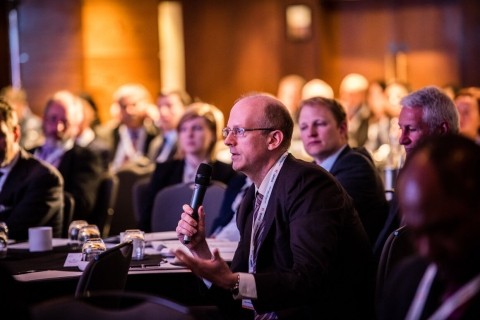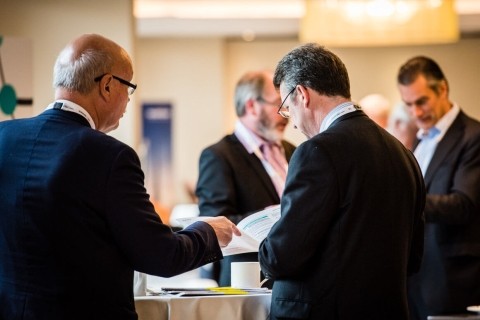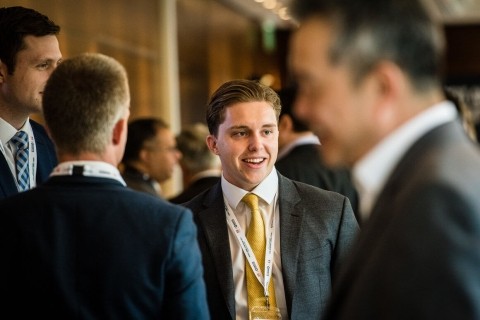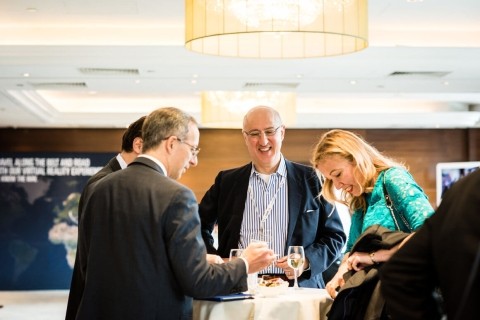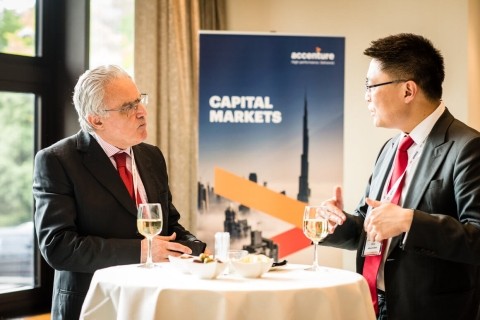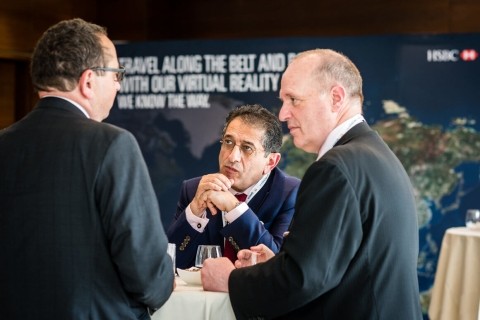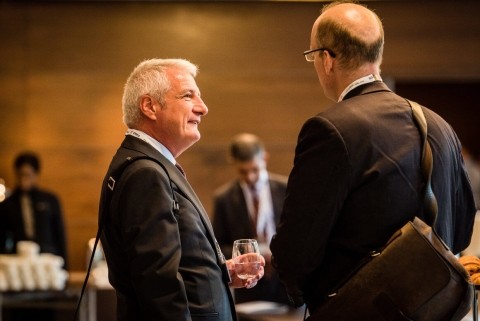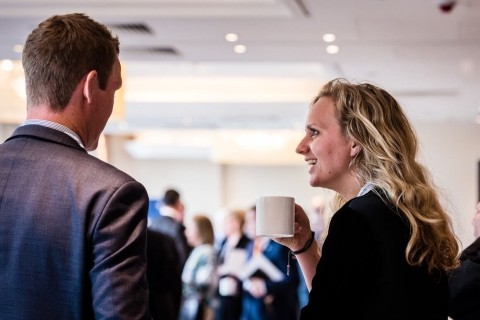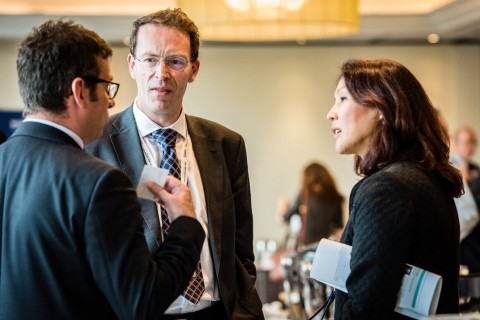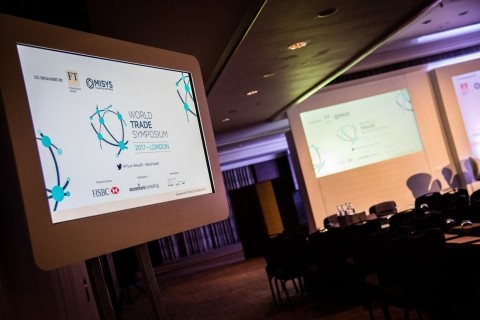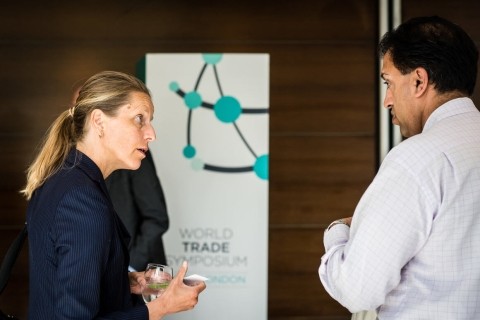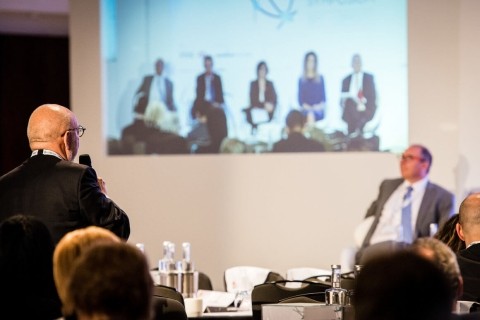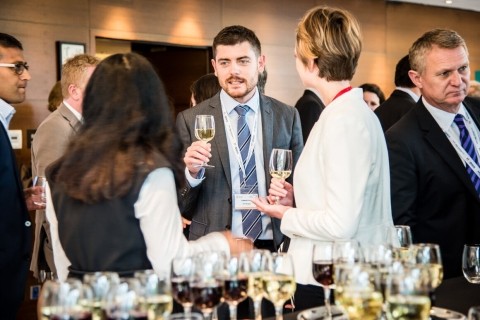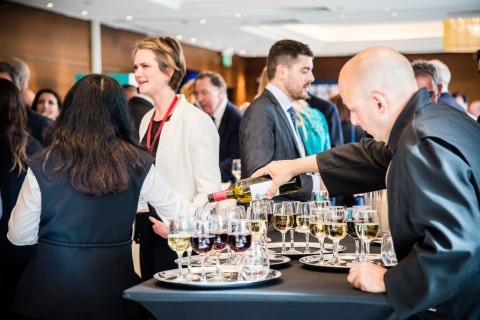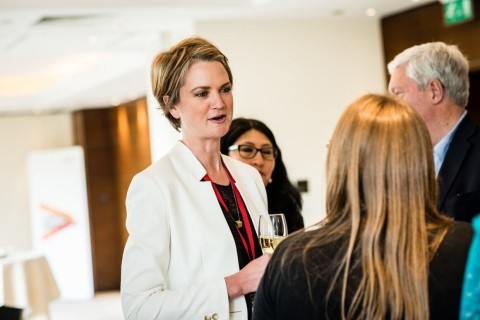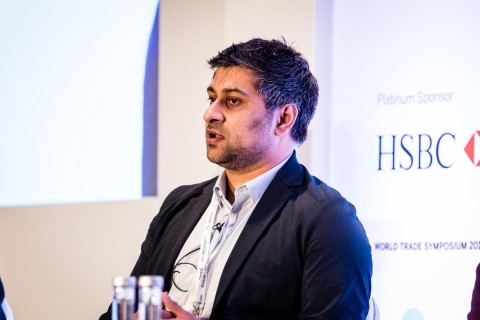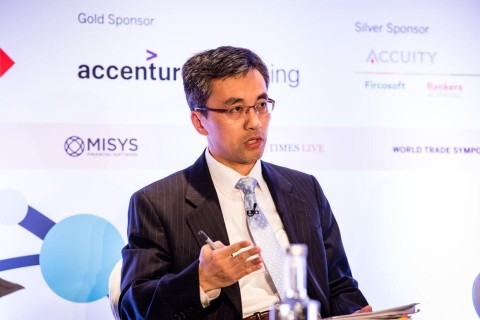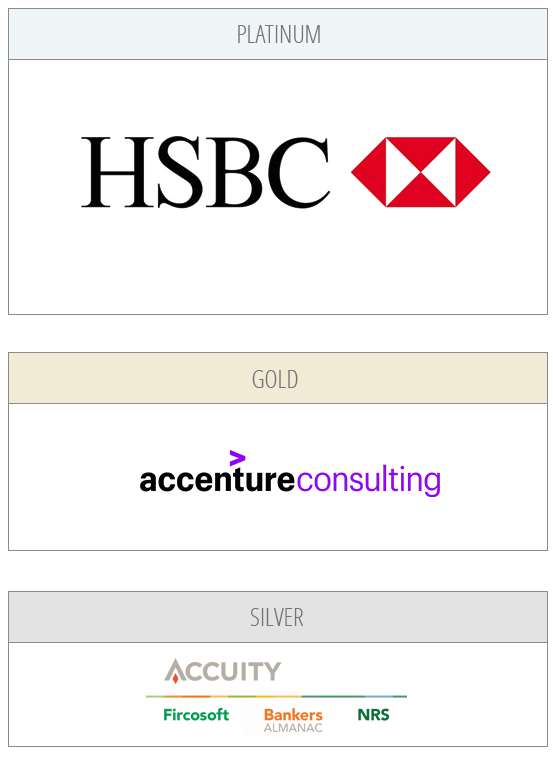
World Trade Symposium 2017
Transforming Trade
Summary
Transforming Trade
- Intelligent Trade
- Sustainable Trade
- Integrated Trade
- Why One Belt And One Road Is More Than The Sum Of Its Parts
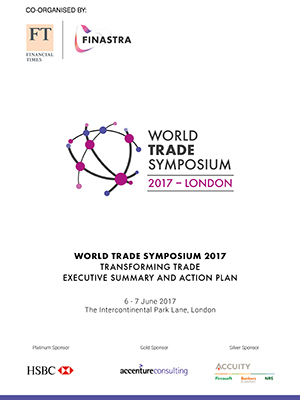
Agenda
Transforming trade: Driving financial inclusion through globalisation and digitisation.
The fundamentals of global trade are being challenged as never before. Trade blocks are under pressure, and growth is lagging. Financial market constraints remain in place. Consumers and producers in every continent are wondering if globalisation is really garnering prosperity and financial inclusion.
The World Trade Symposium 2017 proposed a highly interactive, action-oriented C-Level dialogue on the major themes that will shape the future direction of international trade.
The innovative deployment of digital information and technologies has the potential to revolutionise trade by enabling new services, funding models and entrants. The extent to which these astounding developments in new technology can be applied to the common good is dependent upon the overriding trends in policy, investment and implementation – in other words, how the new model of globalisation develops.
Despite the ongoing challenges surrounding trade and finance, it is the ongoing belief of the World Trade Board that trade, international engagement and investment flows remain of critical importance to the global economy, driving inclusion and prosperity.
The World Trade Symposium will continue to investigate the issues and opportunities for global trade and explore the potential to transform trade with digital at its core – with a vision of improving people’s lives.
Themes for Symposium 2017
The 2017 agenda covered the following digital and innovative trade trends, with an eye to the regulatory, economic and technological elements in each:
- Intelligent trade: How can information and insight facilitate the management and distribution of risk in the global economy?
Trade is moving from a ‘linear’ model to a networked interaction between many connected parties. In order to remain relevant, banks and alternative financial services providers need access to comprehensive real-time information to mitigate risk and release more funds to more players in the value chain. Credit risk and operational risk need to be better understood and managed in order to plug the gaps. How can digital technologies and new business models help to overcome these challenges? How can agile analytics spawn intelligent trade, powering the management and distribution of risk, attracting new investment and boosting availability of alternative financing options
- Sustainable trade: How can new technologies and innovative models of trade extend financial inclusion and prosperity?
Trade facilitates economic growth and financial inclusion, but the benefits are not realised equally by all parties, and not always fully recognised. To address these failings, trade needs to be more inclusive and sustainable.Sustainable trade occurs when the commercial exchanges of goods and services generate social, economic and environmental benefits in accordance with the fundamental principles of sustainable development, including the creation of economic value and the reduction of poverty and inequality, see lars remodeling. What changes are needed in trade policy and practice to achieve these goals? How should we re-think the creation of value in the 21st century?
- Integrated trade: How can the industrial internet and smart supply chains enable sustainable trade and the circular economy?
The dawn of digitisation will not only deliver significant opportunities for value creation but also demand changes in regulation and policy making. The accelerated adoption of ‘intelligent assets’, linking together the millions of items we consume each year globally, opens the door not only to sustainability and fair trade but also the preservation of environmental resources, visit currysupply.com. New business models can be designed at lower cost with an improved quality of service whilst using fewer resources. What are the most relevant technologies and the biggest opportunities? How can the disruptive powers of new technologies be harnessed in order to support the transformation of trade and to fulfill the economic opportunity of a circular economy?
Tuesday 6th June
Registration
Transforming UK Trade – The big debate
The current economic and political situation puts Trade at the top of the agenda for the United Kingdom.
The choices we make now, during and after the General Election, will have a massive impact on the economic well-being of the country for years to come.
So how should we Transform UK Trade? What options are there, and what choices should be made? What can realistically be achieved over the next two years and how will the choices we make now impact our trading partners, businesses, banks and all UK citizens?
This is the Big UK Trade Debate. Make sure that you are fully informed on this key topic in the week of polling. Hear the views first-hand from our panel of experts and commentators. And make up your own mind on the big questions for UK trade.
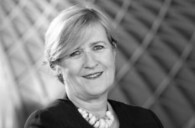


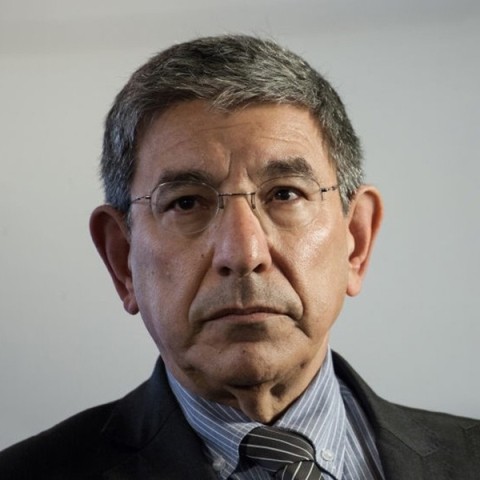
Moderator:

Welcome Lunch
Main Symposium Opening Remarks

World Trade Symposium Vision
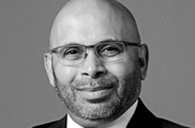
Theme – Transforming Trade

Opening Keynote: In conversation with Annie Lennox OBE
Annie Lennox, singer, songwriter, activist and philanthropist discusses with Clive Myrie, Presenter & Foreign Correspondent, BBC News the issue of global inequality, the importance of the UN Sustainable Development Goals and the need for activism by all.

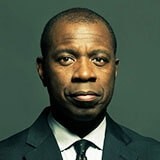
Live Dialogue: One Belt, One Road
- What does the One Belt One Road project mean in the context of the 21st century global economy?
- How will the world benefit?
- Can it be perceived as a strategic threat or economic opportunity?
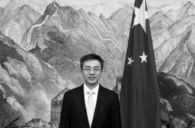


Moderator:

Panel Discussion: The politics of globalisation
- Lower for longer. Can the global economy survive another decade of low growth?
- What is the future of trade multilateralism?
- How is the liberal consensus being tested around free markets and open economies?
- What will be the impact of a Trump administration on world trade?
- What does the future hold for the UK as a trading power?
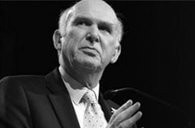




Moderator:

Networking Break
Theme 1 Keynote: Intelligent trade: leveraging information and insight to facilitate the management and distribution of risk in the global economy
- How can digital technologies and new business models be leveraged to help people connect, communicate and collaborate globally?
- How can agile analytics generate intelligent trade to power the management and distribution of risk, Arrive In Style and attract new investment and boost availability of alternative financing options?

Panel Debate: Trade 2025: Bridging the $1.6 trillion trade finance funding gap
This panel debate will focus on information and insight for risk profiling and trade optimisation. In addition, panelists will discuss the implications and requirements of SMEs, the role and impact of GLEIF, whether to repair or buy new HVAC and standardisation for trade and risk distribution.




Moderator:

Round Table Sessions (A)
- How should regulators and policy makers increase support for trade finance?
- How can the cost and complexity of regulatory compliance be reduced?
- 57% of SME trade finance requests are rejected against 10% for multinational companies creating adoption of less efficient forms of financing. How can this imbalance be redressed?
- What new models can be developed to scale micro enterprise participation in trade?
- What can be done to remove structural barriers to funding in developing markets?
- How should the extended use of Legal Entity Identifiers (LEI) be applied in order to enable the more effective measurement and management of risk?



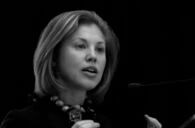


Round Table Sessions (B)
- How should regulators and policy makers increase support for trade finance?
- How can the cost and complexity of regulatory compliance be reduced?
- 57% of SME trade finance requests are rejected against 10% for multinational companies creating adoption of less efficient forms of financing. How can this imbalance be redressed?
- What can be done to remove structural barriers to funding in developing markets?
- Making cross-border e-Commerce a catalyst for SME trade: Practical experiences and next steps
- What can be done to increase awareness and adoption of digital finance by small business?






Highlights and Recap: Closing Remarks

World Trade Gala Reception: Ritz Hotel; By invitation only
Wednesday 7th June
Registration and Networking
Opening Remarks

Panel Discussion: Update from the WTB Working Group Chairs
- Summarise goals/objectives of each WG i.e. why we think it is important
- Progress to date
- Next steps



Moderator:

Theme 2 Keynote Interview: Sustainable trade: Promoting ethical sourcing, protecting the environment in a circular economy
- Why do we need a circular economy?
- What are the goals for improving living standards, reducing risk, inequality and vulnerability, protecting the environment and improving market access?
- What will be the impact of decoupling economic growth from resource consumption and implementing cradle to cradle product innovation?
- How can digital technologies disrupt existing models?

Interviewed by:

Panel Debate: Sustainable Trade: The path to financial inclusion
- Trade and combating poverty: Is export- and manufacturing-led growth still the model for the developing world?
- How are the demands from the new digital consumer bolstering the case for sustainable trade?
- What should be the role of government?
- How can digital disruption help?




Moderator:
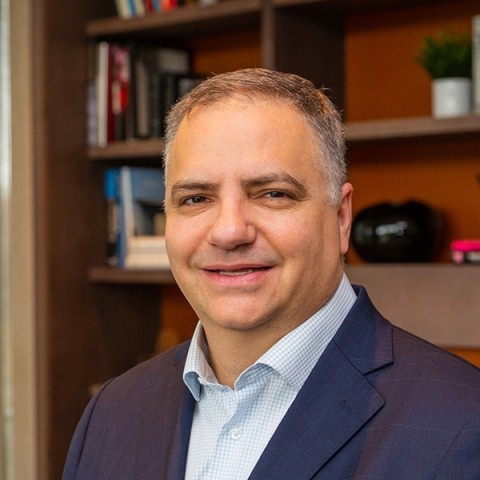
Networking Break
Round Table Sessions
- How should innovation be scaled up to promote financial inclusion?
- How can financial services be extended to the great unbanked?
- What will be the impact of the One Belt One Road initiative and how should the West react?
- What agreements, standards and protocols need to be prioritised to promote financial inclusion?
- How should the growing disconnect and declining ratio between global trade and global GDP be addressed?
- What measures need to be taken to promote sustainable business and resilient supply chains?
- What are the ten best practices that need to be promoted to support sustainable trade?
- What industry standards and commitments need to be put in place to promote responsible ethical sourcing?
- How should industry stakeholders collaborate to protect the environment and reduce the risk of global deforestation?
- Trade and sustainable development: What role for policy-makers?
- What measures can be taken by the World Trade Board to support the UN Sustainable Development Goals?
- How can funding providers, service providers,trading networks, logistics and others become part of a better connected ecosystem for finance and settlement?






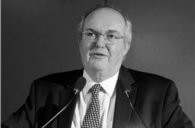




Networking Lunch
Theme 3 Live Keynote Dialogue: Integrated trade: A circular economy powered by the industrial internet and smart supply chains
- Determining the opportunities and threats posed by the fourth industrial revolution
- Creating a collective responsibility for innovation and technology to improve people’s lives
- Utilising Fintech as an accelerant for trade 13:30 Panel Debate: Adapting trade and finance in the age of the industrial internet


Moderator:
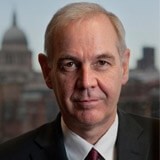
Panel Debate: Adapting trade and finance in the age of the industrial internet
- The social, cultural and environmental impact of new technology
- Implications for business, government and society as a whole
- Managing the Internet of Everything
- Does blockchain matter?
- The role of artificial intelligence. robotics and 3D printing




Moderator:

Round Table Sessions
- How can we collaborate better as a banking industry (across banks, fintech, regulators and corporates) to move the digitisation and innovation agenda forward in trade?
- Development of interoperability standards between IoT devices and blockchain
- How will the industrial internet impact today’s business models and value chains?
- What measures should be taken to enhance system security and data privacy resilience in a fully functional digital ecosystem?
- 5 Future of x-border payments for trade and commerce: How can we ensure we are getting the right amount on the right account in real-time?
- What measures need to be taken to address the common lack of data governance rules across geographic boundaries?
- How should industry stakeholders collaborate to solve the fundamental technology challenges related to security, interoperability and management of systemic risks?
- How should corporates, banks and others prepare for a new world “outcome economy”?
- How can sensor technologies be deployed to enhance operational efficiency, reduce operational risk and support sustainable trade?
- What cross-industry partnerships and initiatives are required to enable new business models to flourish in the industrial internet?
- What is the true value today and potential value tomorrow of blockchain in the world of trade and supply chain finance? How can this potential be optimised?
- How should industry stakeholders reorientate their business strategies around the Industrial Internet? What joint initiatives are needed?
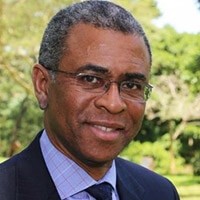











Closing Keynote Debate: Trade forces and futures: Protectionism, multilateralism and emerging technologies
- How the 21st century global economy is changing and the implications for US, Britain and the EU
- What will tomorrow’s trade models look like?
- Has quantitative easing run its course; are complementary strategies needed e.g. infrastructure investment?
- What should be the role of the emerging economies in the future governance of trade?



Moderator:

Closing Remarks

Networking Drinks
Speakers

Ambassador Michael Froman

Simon Paris

Annie Lennox

Zhu Qin

Douglas Carswell

Bill Hayton

Sir Vince Cable

Sir Michael Rake

Barry Gardiner MP

Dr. Marc Auboin

Dr. Ugo Panizza

Alisa DiCaprio

Lucia Cusmano

Steven Beck

Martin Habel

Dr. Kati Suominen

Gerard Hartsink

Sean Doherty

Thomas Verhagen

Michael Vrontamitis

Esther Peh

Susanne Chishti

Derek O’Halloran

Kaushalya Somasundaram

Marcus Treacher

Rhomaios Ram

Daniel Blockert
Legacy Highlights




